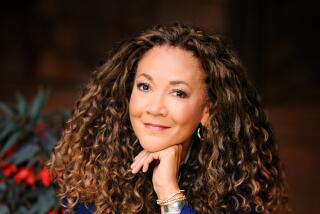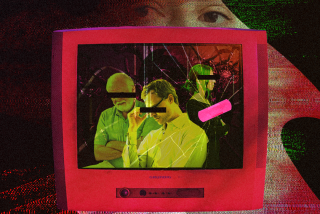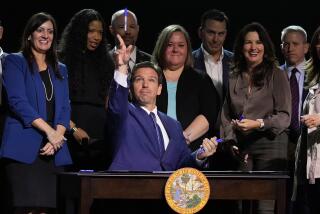Workshop on Whiteness Explores Unearned Rights
BURLINGTON, N.J. — There it was on the Internet: an invitation to a “dialogue on whiteness,” a two-day workshop in New Jersey sponsored by a pint-sized nonprofit organization called the Center for the Study of White American Culture. Images of race-baiting rednecks sprang to mind.
At first, underwriters were reluctant even to provide insurance for the conference, on the assumption this was some sort of unsavory, high-risk gathering. It is, after all, politically correct to talk about “blackness,” but “whiteness” is out of bounds. “White is beautiful?” No way, except to a heretic or a racist.
But this was a different kind of gathering. Fifty-five people, including about 15 African Americans, showed up at Burlington’s 300-year-old Quaker meeting house.
Most were academics and university students. The whites were an earnest and guilt-ridden group, carrying the heavy baggage of their whiteness. Their intentions were beyond reproach: to examine racism in a new way with the purpose of achieving a just, multiracial society.
Typically we combat racism by addressing the injustices victims suffer. We enact laws, examine attitudes, punish corporate racism, pass quota systems. At some point the playing field is supposed to get level.
This is not an approach the participants in Burlington bought into. To end racism, they believed, whites must examine their ethnicity and understand that their color gives them unearned privilege.
Their thesis, which is being taught at some universities and has enough credibility to have attracted to the conference a Navy representative specializing in diversity training, goes like this:
Whites have special entitlements. Yet they don’t perceive themselves as privileged. They think of whiteness as a neutral color, the norm. Other colors are aberrant. To be enlightened (“endarkened”?) non-whites are expected to step up to this norm.
At the heart of racism are not individual acts of meanness. Rather, it is the power of privilege, which whites take advantage of, usually unconsciously and with no intended ill will.
Peggy McIntosh, a Wellesley College professor and a leader in the study of “whiteness,” equates this privilege with the advantages of being right-handed. Pick up a pair of scissors, grasp a door handle, sit at a student’s desk. They are designed for righties. But what right-handed person ever thought of himself as privileged?
“This is not about guilt or blame,” McIntosh said, although many of the whites at the conference clearly carried plenty of both. “We were born into a system we did not invent. What it is about, though, is self-reflection of the white culture, an awareness that we have more money, more power, more education. We have an unearned advantage by virtue of being white.” Since whites generally do not see “whiteness” as a racial identity, most probably never considered that their privilege includes not having to worry they might be stopped by the police, might be eyed in a department store as a potential shoplifter, might be viewed as unqualified for a job even though they have a Harvard doctorate--all just because of their color.
Throughout the conference, political correctness was worn as a badge of sincerity. God forbid that anyone should think Columbus Day and Thanksgiving don’t have racist underpinnings or that ethnic minorities were identified by any term other than “people of color.” But the term was always used as synonymous with African American, and other minorities were unrepresented at the conference.
Two days of talking did not produce any agreement on how to dismantle white privilege or whether maleness and heterosexuality also needed to be included in an examination of whiteness and racism. But undeniably, the participants took their work seriously in grappling with an issue that most Americans retreat from, even though many of the concepts were new and a bit bewildering.
What happens, one of the workshop leaders asked, when a white body is blackened by engaging in anti-racist efforts? Replied a graduate student: “Doesn’t it just become negative space?”
More to Read
Sign up for Essential California
The most important California stories and recommendations in your inbox every morning.
You may occasionally receive promotional content from the Los Angeles Times.










